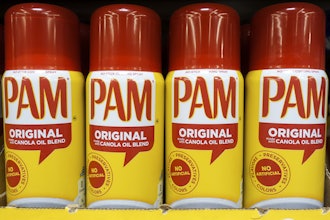LINCOLN, Neb. (AP) — Breweries in Nebraska say a federal proposal would force them to stop giving spent grains to local farmers to use as cattle feed.
Brewers and farmers say the practice is mutually beneficial. It gives farmers cheap and nutritious cattle feed and the breweries no longer have to pay to have the spent grains hauled to a landfill.
The Food and Drug Administration wants to require brewers to meet the same standards that livestock and pet food manufacturers must meet, which include sanitary handling procedures, record keeping and other food safety processes, the Lincoln Journal Star reported Thursday.
To meet those standards, breweries say they would have to dry the spent grains and package them before distributing them to farmers as feed.
"That not only takes another employee, but a lot of energy and equipment that none of us have," said Brian Podwinski, president of Blue Blood Brewing in Lincoln.
The Beer Institute, a trade industry group, estimates it would cost a brewery $13 million in one-time and recurring costs to be able to meet the proposed FDA standards.
"It's a cost that we couldn't bear," said Marcus Powers, one of the owners of Zipline Brewing, another Lincoln-based brewery.
Jim Engelbart, with Empyrean Brewing Co. of Lincoln, said a local dairy farmer comes to Empyrean once or twice a week to load a trailer with the 10,000 to 11,000 pounds of spent grains the brewery produces weekly. Sending that spent grain to the landfill would triple Empyrean's costs for trash disposal, Engelbart said.
Doug Drevo, who has a small cattle operation near Lincoln, picks up the spent grains from Blue Blood's brewing operations.
He said not only is using the spent grains cheaper than having to buy corn or hay, it has a higher protein content and makes a better cattle feed.
If the proposed regulations go into effect, they would "significantly increase the costs of raising cattle," Drevo said.
The FDA says the proposed regulations will improve the safety of animal food and prevent the spread of food-borne illnesses in animals and people. The proposal is part of the Food Safety Modernization Act's effort to modernize the food safety system and prevent safety problems before they occur.
The Brewers Association, another industry group, has said there is no evidence that breweries' spent grains cause any hazards to animals or humans, and that the proposed rules simply create new and onerous burdens for brewers and farmers.
Monday was the deadline for public comments on the proposed regulations. An FDA spokeswoman said the agency will consider all comments submitted over the next several months.






















